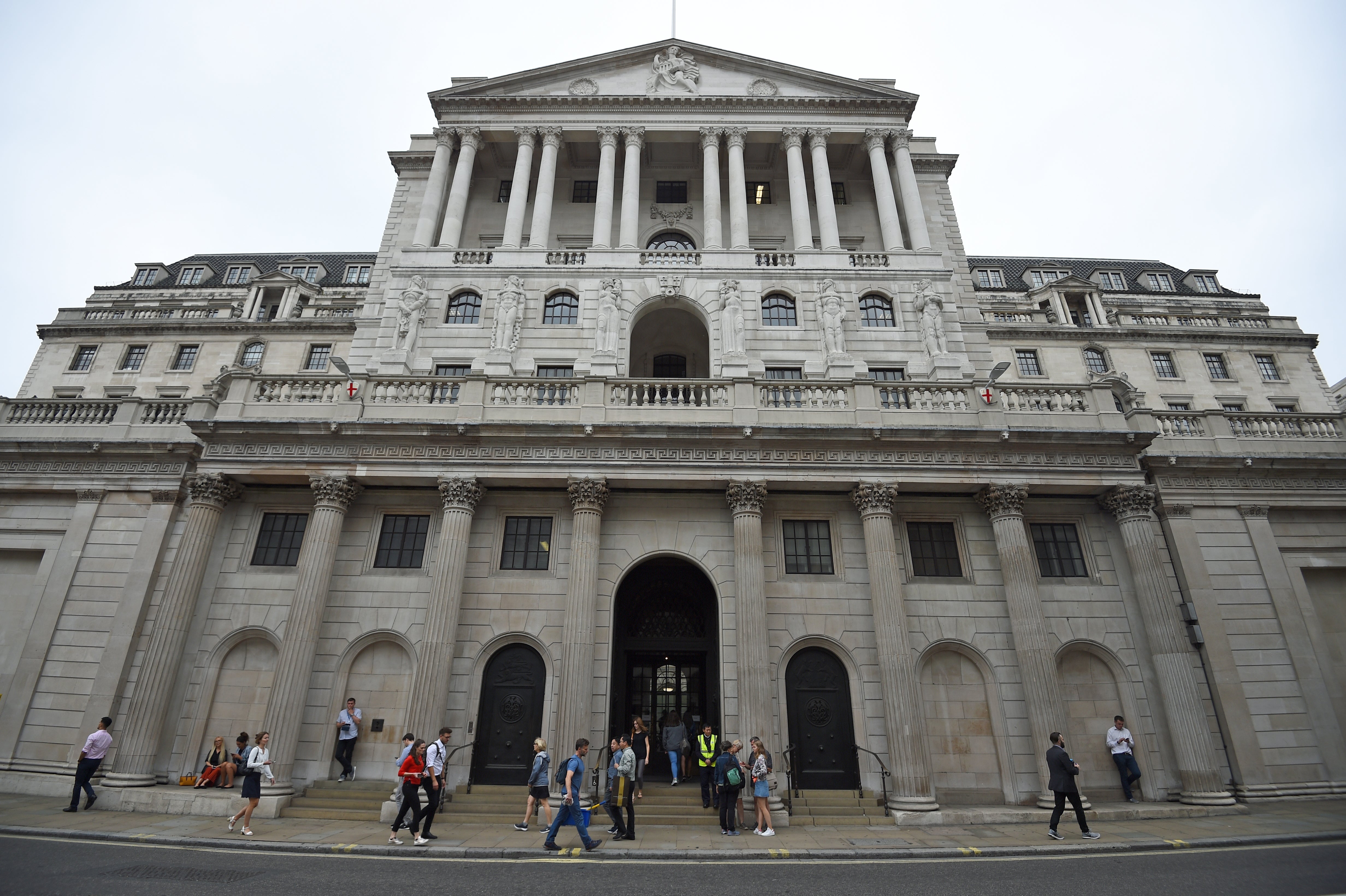Bank seen reining in rate hikes amid Ukraine conflict despite inflation fears
ING experts said there had been a ‘massive’ re-pricing of UK interest rates by financial markets due to Russia’s invasion of Ukraine.

Your support helps us to tell the story
From reproductive rights to climate change to Big Tech, The Independent is on the ground when the story is developing. Whether it's investigating the financials of Elon Musk's pro-Trump PAC or producing our latest documentary, 'The A Word', which shines a light on the American women fighting for reproductive rights, we know how important it is to parse out the facts from the messaging.
At such a critical moment in US history, we need reporters on the ground. Your donation allows us to keep sending journalists to speak to both sides of the story.
The Independent is trusted by Americans across the entire political spectrum. And unlike many other quality news outlets, we choose not to lock Americans out of our reporting and analysis with paywalls. We believe quality journalism should be available to everyone, paid for by those who can afford it.
Your support makes all the difference.The Bank of England may scale back interest rate rises due to the conflict in Ukraine as financial markets have slashed their predictions for hikes amid the crisis despite rocketing inflation.
ING experts said there had been a “massive” re-pricing of interest rates in the UK, with markets now betting on rates rising from 0.5% to 1.5% by the end of the year – down sharply on the previous expectation of a peak of more than 2.25%.
This comes despite economists warning that Russia’s invasion of Ukraine will send inflation soaring to around 8% in April.
Despite the surge in European natural gas prices and what that means for UK inflation... the Bank of England tightening cycle has suffered one of the largest re-pricings lower
The war is compounding an already painful cost of living crisis in the UK, pushing up sky-high fuel and energy costs even further as it disrupts oil and gas supplies from Russia.
The Bank is still seen as being likely to raise rates again when it meets later in March, but fears over the impact of the conflict on the UK and global economy are expected to tie its hands from raising rates much further this year.
ING experts said: “Despite the surge in European natural gas prices and what that means for UK inflation – we have that peaking near 8% now not 7% – the Bank of England tightening cycle has suffered one of the largest re-pricings lower.”
Economist Samuel Tombs at Pantheon Macroeconomics believes markets have not trimmed their rate expectations enough, forecasting that the Bank will push the button on only two more rises this year.
He said: “We’ve become more confident in our call… that the MPC will only manage to raise Bank Rate to 1% this year, with 25 basis point hikes in March and May, followed by a long pause.”
The boss of Man Group – one of the world’s biggest hedge funds – said on Tuesday that Russia’s invasion of Ukraine was likely to delay rate rises globally.
Luke Ellis told the Financial Times that “central banks will be less aggressive than they would have been, even though their problem is worse”, with the war pushing up inflation worldwide.
It signals further cost pain for under-pressure British households and businesses over the year ahead, with the Bank becoming even more powerless to help.
As well as rising prices on fuel forecourts and energy tariffs as a result of the crisis, Britons are also set to see food costs ramp up.
Russia’s invasion has heaped yet more pressure on agricultural commodity prices in recent days.
Wheat and corn prices rose more than 5% per bushel and are already up more than 20% so far this year, with Ukraine being a key exporter of both crops.
The Bank had already warned last month that real household disposable income – after inflation – would suffer a 2% fall in 2022 – seen as being the biggest drop since the Second World War.